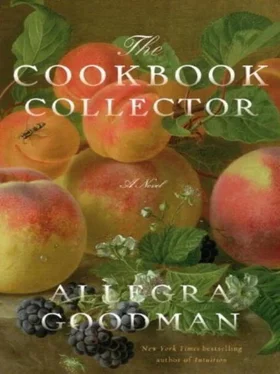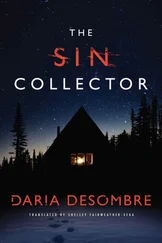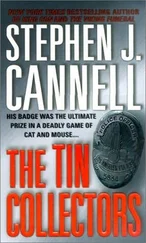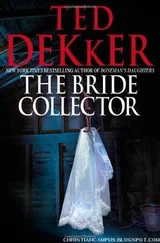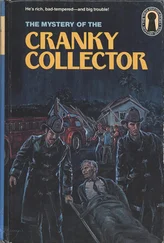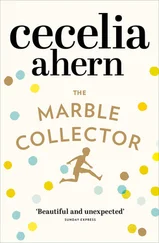“George,” she said one evening as she lay in his arms.
“Jessamine.” His eyes were soft, his face unguarded, almost boyish in the low light.
“I have to ask you something.”
“I have to ask you something too.” He was wearing his wristwatch, a vintage Patek Philippe he’d forgotten to take off. She didn’t wear a watch, and so she wore nothing at all.
“Okay.” She had been lying with her head on his chest, and now she propped her chin up on her arms, a gesture both adorable and suffocating.
“No, you ask first,” he said, “because I can’t breathe.”
“I’m sorry!” She rolled off and she lay on her side, facing him. “I wanted to ask you about the cookbook. I doubt McClintock knew how rare it was. I don’t think he understood how much the books were worth, but he had a thing for women cookbook writers, and obviously he fixated on McLintock because of her name. So do you think there was a Mrs. McClintock in his life whom Sandra doesn’t know about? Do you think maybe he was married at some point when he was young, when he was buying all these books after the War?”
“No, sweetheart,” said George.
“Really?” she asked yearningly, and he couldn’t tell whether she was questioning the no or the word sweetheart , which he had never used before.
He caressed her waist and the curve of her hip with his hand. “He never married her. He never got anywhere with her.”
“You always say that, but what evidence do you have?”
“The whole collection, every note he wrote.”
“People thought Troy was a myth too,” Jess reminded George, “and now those ruins have been found. Don’t laugh! I think he knew her. She wasn’t somebody that he saw once. He drew her as if he saw her every day.”
“We’ll never know, will we?”
“Yes, we will. I’m going to find out,” said Jess, clear-eyed, pure. She was so lovely. Not just her face, but her faith that there was such a thing as truth, her conviction that there were immutable answers if you took the trouble to find them out.
“Stay here tonight,” George whispered.
“That’s what you were going to ask?”
“Will you?”
He had said one of the things they did not say. “I thought we weren’t doing that.”
“You’re right,” he said. “Sleeping together is one thing, but …”
She buried her head in his pillow.
“Talking about it is another.”
He didn’t want to talk about it either. He wanted to remain in this dream state as long as possible. The outside world was all obstacles and complications. Leon. The Tree Savers. Their missions up to Humboldt County. George could say Leon was dangerous. He could tell Jess that she was wrong to get involved with him. What was he offering in return? A sinecure. A dependency. To be crass, his bed. He could say he loved her. Would he mean it? They enjoyed each other. They were friends, and he desired her. He knew himself well enough to doubt that such feelings would last. He was fully capable of breaking Jess’s heart.
As for Jess—she was mixed-up about George. She was at home with him. Calm and happy. She could think aloud. She never felt that way at the Tree House, and yet the people there shared her beliefs about the world. Philosophically, ideologically, she and Leon were a pair. She and George agreed on nothing politically. He had no interest in the environment. He recycled like everybody else, but he cared little for other species, and maligned Tree Savers as eco-terrorists. He was old that way, ill-informed and cynical, preferring books to social change, studying antique maps instead of current battlegrounds of deforestation. Living in the past, he turned his back on the future, and this was a position she deplored.
Then there was his money. She remembered Leon’s warning: You’ll end up in his collection too . She could see it happening. She was entranced by his house, his wine, his cookbooks, his quick smile. Recipe for disaster. She was falling in love with George, and she worked for him too. What would that make her? The young girlfriend. The mistress, the kept woman. She hated the thought.
Abashed, she read Haywood’s instructions to maidservants, advice on chastity preceding recipes for pickles, directions for choosing meat, best methods for making all kinds of English wines .
If you follow the advice I have already given you, concerning going as frequently as you can to hear sermons, and reading the holy scriptures and other good books, I need not be at the pains to inform you how great the sin is of yielding to any unlawful solicitations: but if you even look no farther than this world —oh, practical Eliza, thought Jess— you will find enough to deter you from giving the least encouragement to any address of that nature, though accompanied with the most soothing and flaterring pretenses .
Jess sighed. She knew, in the long term, she and George were philosophically unsuited, financially unequal, generationally mismatched. Only in the short term did they agree. Only when it came to fingertips, and tongues and wrists. When he touched her and then slipped his wet fingers in her mouth and said, “This is how you taste.” In their laughter and the food he brought her, the freshest and most delicate of vegetables: watercress, fennel, dandelion greens dressed with champagne vinegar. They shared a private language in the cookbooks, and whispered inside jokes. Even their jokes were gentle. Tender buttons. He was tender with her.
She craved his company. The edges of her life were ragged, her feelings conflicted, her behavior incoherent, probably immoral, and at the same time, she was deeply happy, consuming nectarines, and Asian pears, sliced thin, and the pinot he poured for her.
“Try the wine now,” George instructed. Then, a little later, “Try it again,” and she tasted a new liquid altogether. Wine that had been tight and taciturn became mellifluous.
“It’s like finding a door,” she told George as they sat together in his kitchen. “It’s like stepping into a new room you never knew existed.”
“The pinot?”
“No,” she told him. “Everything.”
For she was becoming a researcher, tracing gorgeous threads, preparing a catalogue raisonné of the McClintock Collection, corresponding with scholars and librarians at the Schlesinger and the Huntington and at universities around the world. She had begun to study sweets—the sparing use of sugar in early cookbooks, and its ubiquity in eighteenth-century recipes. She checked out books from Bancroft. Deerr’s History of Sugar . Galway’s The Sugar Cane Industry: An Historical Geography from Its Origins to 1914. Sweetness and Power by Sidney W. Mintz. She spent days writing notes for an article she was planning on the cookbook as cultural emblem and bellwether for abundance and scarcity. Without an affiliation, outside any academic program, she began to imagine weaving together ecology and economics and material culture, embarking on a new career. Should she go back to school? Find herself a program and an advisor? Oh, but it was delicious to work unsupervised. Who had total access to books like these? And when it came to advisors, how could she do better than Tom McClintock, sensualist and lichenologist, artist, lover, ghost?
On a Friday, at the end of August, just before her twenty-fifth birthday, Jess sat alone in George’s dining room and unfolded a menu she had not seen before, one of the collector’s fantasies on graph paper. The menu was tucked inside Le Livre de Cuisine , but titled “McLintock,” and the dishes listed were all in English.
McLINTOCK
July-flower wine
Angelica
Nutmeg cream
Eel-pye
Читать дальше
